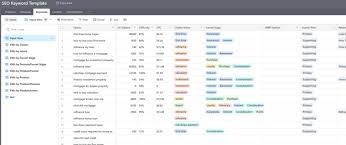Table of Contents
ToggleHow to Do Keyword Research for Free

Introduction
In today’s digital world, ranking on Google and driving organic traffic is more competitive than ever. Whether you’re a blogger, small business owner, freelancer, or marketer, knowing how to find the right keywords is one of the smartest skills you can learn. The best part? You don’t always need expensive SEO software or fancy paid tools — you can do Keyword Research for Free and still get impressive results if you know where to start.
If you want your content to rank on Google, drive traffic, and reach the right audience, you must know how to do keyword research effectively. The good news? You don’t need to pay for expensive SEO tools — you can do keyword research for free with the right approach.
One of the biggest mistakes beginners make is thinking that more content automatically means more traffic. In reality, you can publish 100 blog posts, but if you don’t target the right keywords, very few people will find them. That’s why keyword research is the foundation of any strong SEO strategy. It tells you exactly what people want to know and how many people are searching for it every month. By using Keyword Research for Free, you can uncover profitable topics without burning through your budget.
So if you want to grow your online presence in 2025 and beyond, make keyword research a top priority — and remember, you don’t have to spend big. Start smart, be consistent, and learn how to master Keyword Research for Free to unlock the organic traffic your content deserves.
What Is Keyword Research
Keyword research is the process of finding and analyzing the search terms people use to find information online. The goal is to discover keywords with good search volume and low competition, so you can create content that ranks well and brings in organic traffic.
How to Do Keyword Research for Free – Step by Step
1. Understand Your Niche and Goals
Before you dive into tools, clarify your topic, audience, and what you want to achieve.

2. Use Google Autocomplete and Related Searches
Type your main topic into Google and see what suggestions and related searches appear. These are real keywords people use.

3. Try Free Keyword Research Tools
Use free tools like Ubersuggest’s limited plan, AnswerThePublic’s free tier, or the Keyword Surfer Chrome extension to discover more ideas.

5.Analyze Competitor Keywords
Check what keywords your top competitors are ranking for. You can do this manually by reviewing their content and meta titles.

Best Free Keyword Research Tools
- Google Keyword Planner: The original free SEO tool for keyword ideas and volume.
- Ubersuggest: Limited free version for keyword ideas and site audits.
- AnswerThePublic: Visual keyword and question search data.
- Keyword Surfer: Free Chrome extension to see search volumes directly in Google.
- Google Trends: Analyze keyword popularity over time.
Tips to Get the Most Out of Free Tools
- Combine multiple tools to get the most data.
- Focus on long-tail keywords for easier ranking.
- Check keyword trends to pick topics people care about now.
- Always check keyword intent — what people want when they search.
Common Keyword Research Mistakes to Avoid
- Choosing only high-volume keywords that are too competitive.
- Ignoring search intent.
- Not updating your keywords regularly.
- Relying on one tool only.
Final Thoughts
Learning how to do keyword research for free is one of the most valuable SEO skills you can master. With the right free tools and smart strategies, you can find winning keywords that help your content rank higher and attract the right audience — without spending a dime.
FAQs
Q1. Can I really do keyword research for free?
Yes — there are plenty of reliable free tools and techniques.
Q2. What’s the best free keyword tool for beginners?
Google Keyword Planner is the best place to start.
Q3. Are free keyword tools accurate?
They’re good for getting started, but paid tools often offer more detailed data.
Q4. Should I use more than one tool?
Absolutely — combining tools gives you a bigger picture.
Q5. How often should I do keyword research?
Update your keywords every few months to stay relevant.
